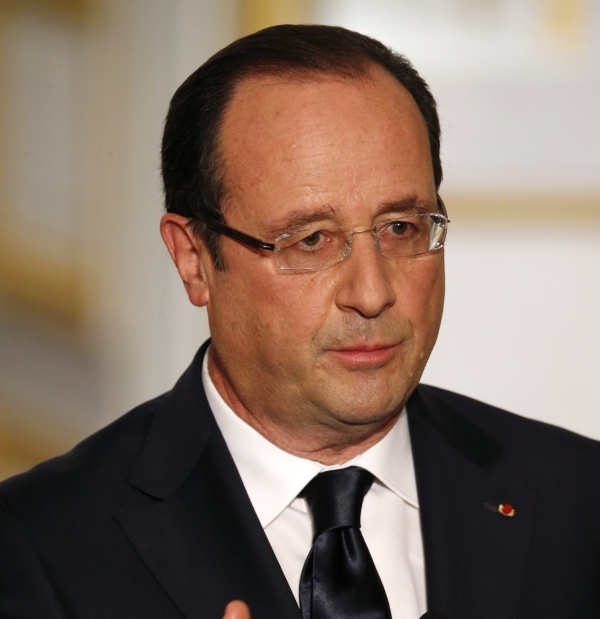By Nihal Zaroug.

Tripoli, 2 June 2013:
French President Francois Hollande has moved to quash rumours of plans of military intervention in southern Libya to crack down on Islamist militants said to be now based there.
“We have not been asked by the Libyan government for help and the UN has not proposed an intervention,” he said in a joint interview with France24, RFI and TV5 Monde on 31 May. France, he insisted, would not act without UN backing and would only support the Libyan state if requested.
Rumours have been flying around in Libya for the past month of imminent foreign military action. First it was that the the US was planning intervention, although the Americans denied it and it goes against the grain of current US regional strategy. Then it was that the French were going to make a move.
The latter rumour followed the deadly attacks in Niger on 23 May when Nigerien President Mahamadou Issouffou claimed that the attackers had entered his country from Libya. Despite a denial from Prime Minister Ali Zeidan of the allegation, French Foreign Minister Laurent Fabius then appeared to suggest that action was neccesary and wanted by Libya. Following a meeting last week with with Issouffou, he was quoted saying: “It seems we must make a special effort on southern Libya, which is also what Libya wants.”
Although refuting any intention to intervene in Libya, the French president has expressed concern about lawlessness in southern Libya, made worse he said by the availability of weapons. Hollande also alluded to the possibility that the 23 April bombing of the France embassy in Tripoli and the attack on the uranium mine run by French nuclear company Areva in Niger, may have both been committed by terrorists located in Libya’s south. However, he oexpressly stated that the attackers of the embassy had not been identified as yet.
According to French foreign ministry spokesman, Philippe Lalliot, Libya has only requested advice, and help for training and border security equipment. Lalliot, also speaking this past Friday, said joint security plans would be revealed this coming week.
During this morning’s session, the General National Congress discussed the urgent security situation in the South, and the problems that remain to be solved. At a recent workshop run by UNSMIL for the Border Guards, police, customs, coastguards and other interested parties it was said that Libya is very keen to crack down in the region but does not have the capability to do so.
The Chief of Staff of the Libyan Border Guard Force, Brigadier-General Abdul-Khaleq Al-Senussi has admitted that the security of the region depends on how effectively Libya secures its borders. “We need everyone to stand by us and help us,” he said, “We need a concerted effort, because maintaining security and stability means stability for the European Union and the Mediterranean area.”
Aware of this, and in a bid to help Libya, the EU has recently announced a €30 million mission, known as the EU Integrated Border Management Assistance Mission (EUBAM), to improve Libya’s border security.
[/restrict]








